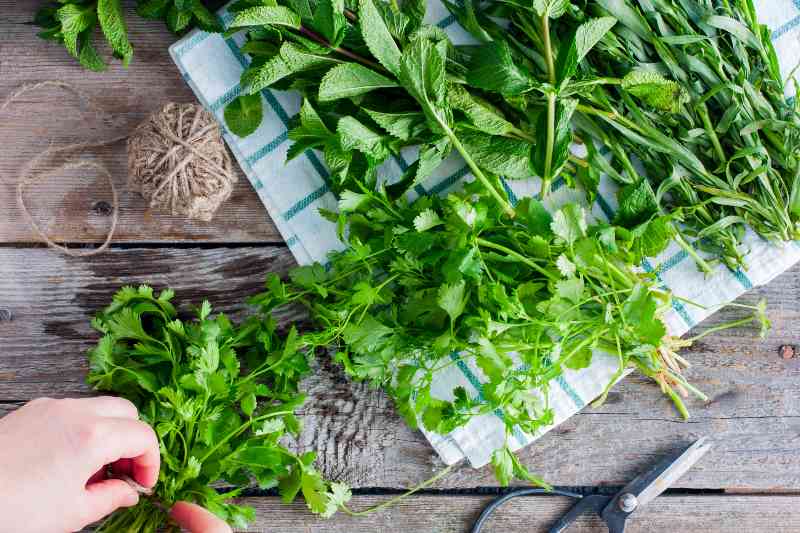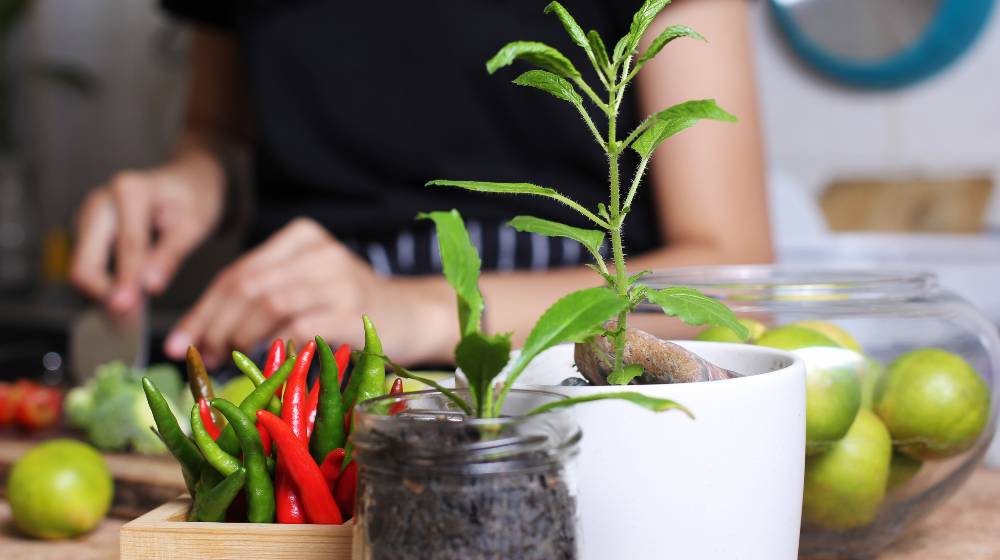Working on organic herbal gardening inside a building is a great way to provide your family with fresh produce and also with beautiful greenery.
In fact, the sweet-smelling herbs not only look and smell good; they are also great for adding flavor to your cooking.
RELATED: Starting With Organic Vegetable and Herbal Gardening
Organic Herbal Gardening in Your Kitchen

Organic herbal gardening in the house has certain advantages over outdoors growing. You are much less season-dependent, and you can have a plot of plants that is just the size you need it to be within constant reach of your kitchen.
As for the plants that you can grow, most herbs that will grow in a garden will also do well indoors. Don’t worry about having to exclude your favorite flavors, but focus instead on the combination of herbs that you would prefer to grow.
For instance, for a fragrant note, you can grow angelica, bergamot, catmint, chamomile, thyme, lavender, lemon balm, and mint. This organic herb garden is also a great organic air freshener, ideal for indoor gardens in small flats.
Another thing you should focus on quickly is the kind of containers that you want to use for your plants. Not all plants grow equally well in small pots, so you should have an awareness of the minimum pot size for your chosen organic herbs.
Make sure that you don’t get any tiny pots meant for growing from seed unless that is your original intention! In fact, better to get slightly bigger pots if you have the space in your growing area.
Container size is important, so begin with those that are a bit larger than those in which the live nursery plants were purchased.
This will give your plants room to start growing. Once your herbs are stabilized and growing well, transplant them into larger containers. This is important to ensure growth and so that nutrients make it from the soil into the plant.
To garden organically, it is important to only use earth that is organically certified. The soil should not be too alkaline or too acid, a medium acidity is just about right. And any fertilizers you choose to use should be organic too.
In most cases, available natural lighting will be enough, although some growers may want to try out electric growing bulbs. But in normal circumstances, these won’t be needed.
Check if your chosen plants prefer sun or shade, and then place the sun-lovers on a south-facing window. The others should go where there is plenty of indirect sunlight.
Make it a habit to regularly tend your organic herbal garden, and you will find that your food will improve much at little expense, and also that you will have brought a piece of nature to your home.








